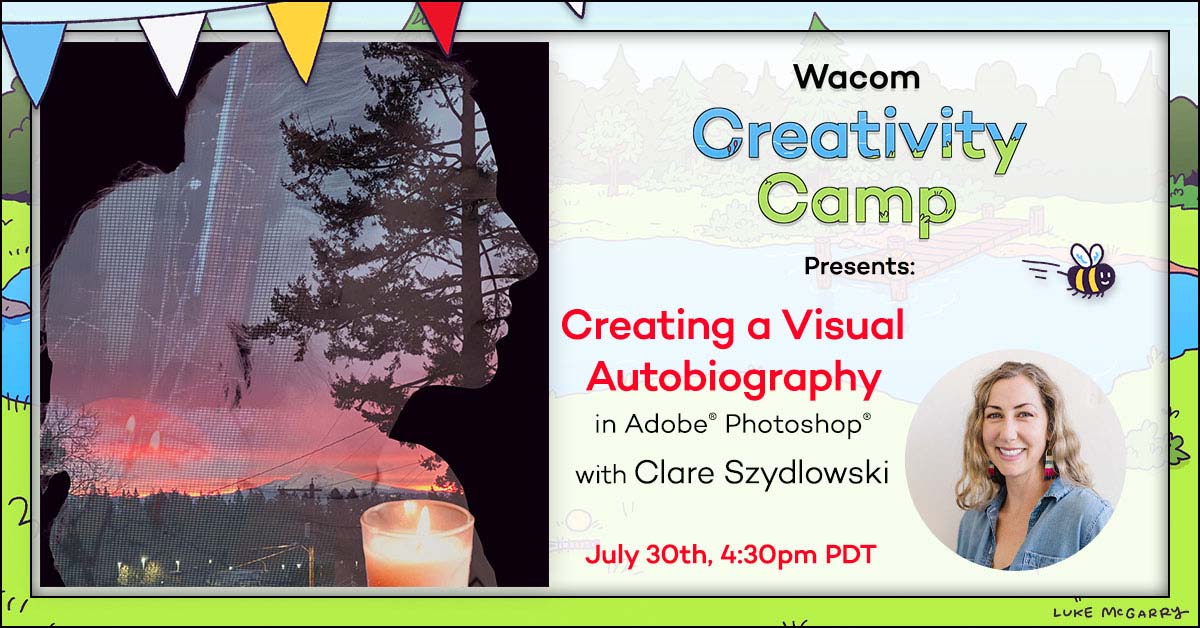We’re so excited to continue Wacom Creativity Camp 2024 with this free online workshop from Clare Szydlowski on Thursday, July 30, 2024, at 4:30pm PDT!
Wacom Creativity Camp is a series of free, live, online workshops from brilliant artists, creators, and educators throughout the month of July 2024! If you want to learn all about character design, illustration, comics, manga, art education, and more, check out the Creativity Camp homepage for all the details and resources. And make sure to sign up for Creativity Camp to get reminders about and to register for all of the workshops!
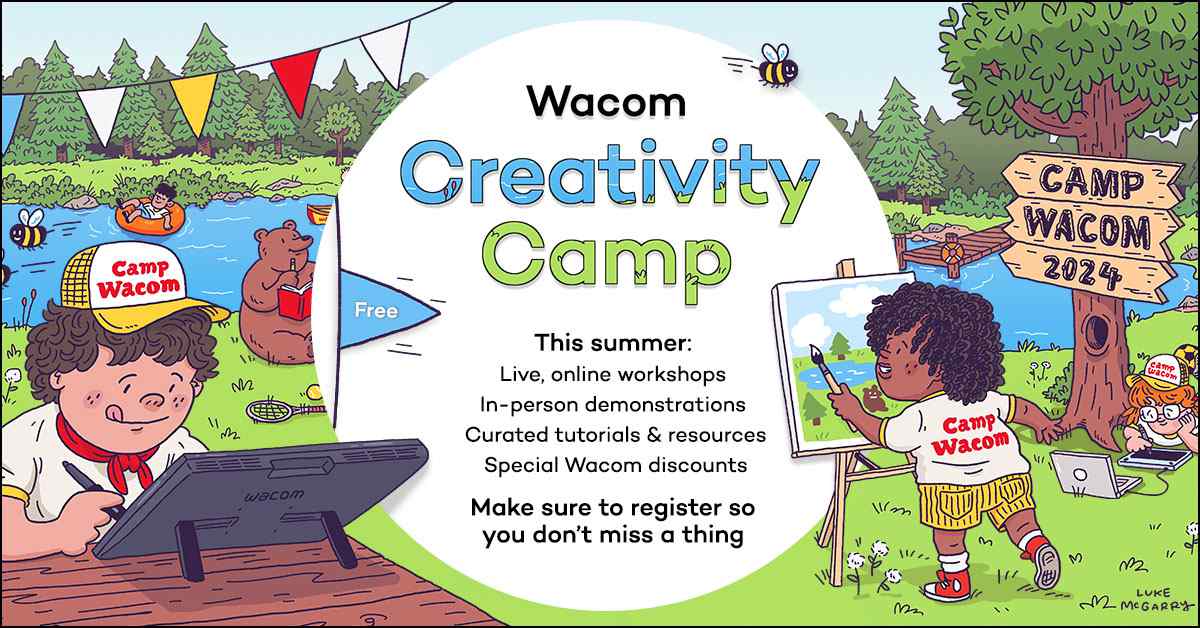
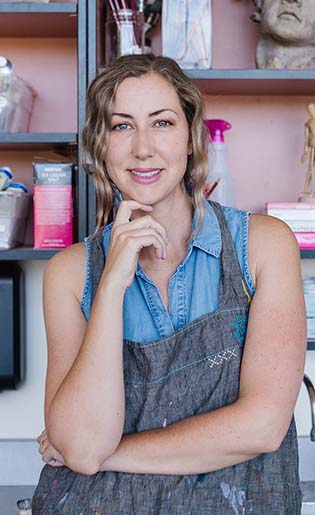
Clare Szydlowski is a dedicated high school art teacher with 17 years of experience and a passion for teaching digital art. As a teacher-author and blogger, she loves sharing fresh ideas and tips to help both new and veteran teachers bring digital art to life in the classroom. Clare holds an MFA in Printmaking and a BA in Art and Education, blending her expertise with a playful approach to learning. Follow her on Instagram or YouTube, or check out her website, Artful Ideas Classroom.
Szydlowski will be presenting How to create a visual autobiography in Adobe Photoshop as part of Creativity Camp on July 30th, 2024, at 4:30pm PDT, live on Zoom! Click here for more info about the workshop and to register.
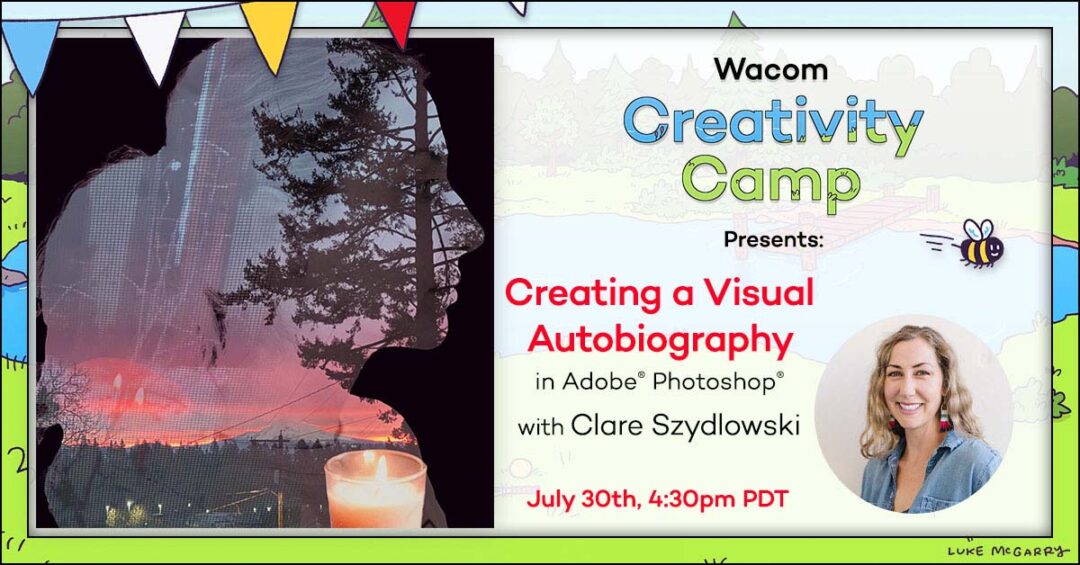
In advance of her workshop, we spoke to Szydlowski about her background, interests, inspirations, what to look forward to during her workshop, and what she’s got going on in the future.
How did you first get into art? Were you a creative kid?
I can’t remember a time when I wasn’t interested in art. As a kid, I did a lot of crafting like jewelry making, quilting, and paint by numbers. As I grew older, I became fascinated with drawing faces. I was lucky that there was an artist in the town where I grew up who offered portrait drawing sessions with a model. Learning to draw from life at a young age has been a wonderful foundation to build upon.
I remember the teacher invited my friend to be the model one week when I was in fifth grade. I gave my friend the portrait I drew of her as a gift, and her parents framed it, and I remember thinking “I’m a real artist now!” I was hooked from that moment and wanted to be an artist and an art teacher from then on.

Do you think going to art school is a necessity, or can young or beginning creatives teach themselves what they need to know?
The online art education world has really exploded, especially since the COVID-19 lockdowns when online learning became much more mainstream. There are so many wonderful options out there from established platforms to small youtube channels that focus on really niche techniques.
You really can learn anything online these days, but I think one of the most important parts of art education is the studio environment and the connections you make with other students and artists. This is hard to translate online, but there are some wonderful tools for fostering community online. Recently I have been sending voice memos or short videos through Instagram direct messages to communicate with other art teachers, and this medium has felt more personal and closer to the studio environment I experienced in college.
I didn’t go to an art school, though; I went to large public universities for both undergrad and grad school. In some ways this worked better for my personality type. I have a wide array of interests, and I was able to take classes in a variety of departments that wouldn’t be available at an art school. But a few years ago I was able to attend a weeklong teacher workshop at a top art school and was blown away by the quality of the instruction, facilities, and resources the school offered.
I think like everything in life, there are advantages and drawbacks to any educational path. Our paths as artists are all unique. You don’t necessarily need to go to art school or study art to be an artist or to work in artistic fields, especially today with all of the online learning opportunities. I absolutely believe that young creatives can teach themselves what they need to know to work in a creative profession. However, most professions still want to see some higher education on resumes. I am hopeful that this is changing and more and more companies are interested in the quality of the work over credentials.
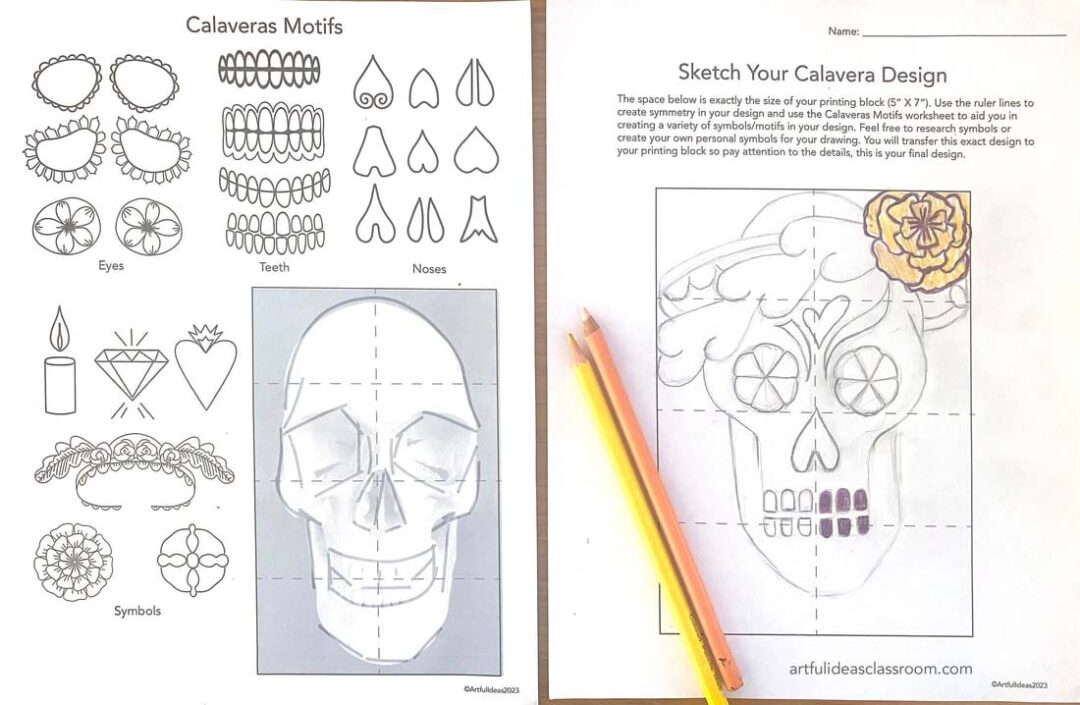
You currently work in art education. How did you decide what you wanted to pursue as a career? What do you love about it?
I have wanted to be an art teacher since I was in elementary school. I idolized all of my art teachers, and art was my favorite class. The thought of getting to stay in the art room was an absolute dream. Even though there are challenges as a teacher, I can honestly say I still feel much the same way as I did as a kid. The art room is my favorite place to be!
One of my favorite parts of working art education is the freedom and creativity to design curriculum. Art teachers don’t have a textbook to follow, and this offers wonderful opportunities for innovation. It is this passion for curriculum design that led me to share my lessons on my blog and social media accounts. The art room is a sort of test kitchen for me where I can put out materials and ideas and see what my students do with them. I think the most rewarding aspect of the job is seeing students who didn’t see themselves as creative surprise themselves and create something they are really proud of… and I get to experience this year after year!
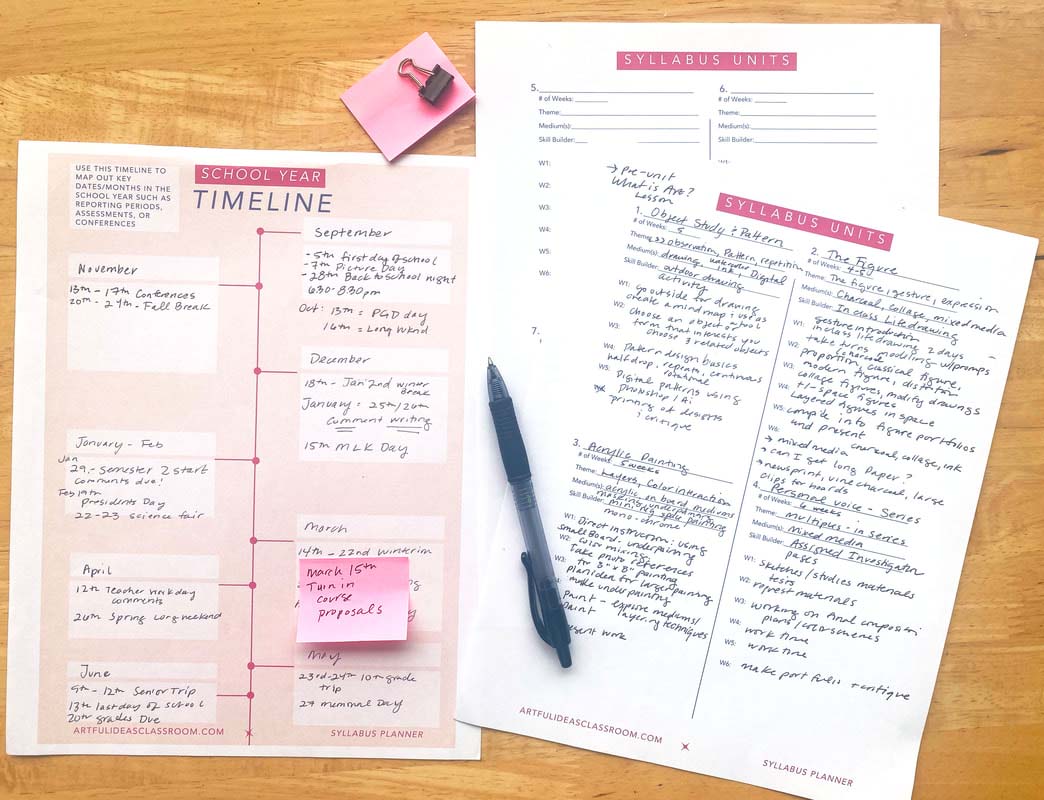
What tips or advice do you have for students or beginners who might want to follow a similar path to yours?
I graduated from my MFA program in 2009, which was during a tough job market for all professions. Fortunately, I landed a job at an independent school where I had interned as a teacher for the previous two years. My Art Education professor, Julia Marshall, who was a world-renowned educator and an unbelievably caring mentor, recognized my passion for Art Education and connected me with the department chair at that school. This connection led to my internship and eventually to a part-time teaching position after I graduated. To make ends meet, I took on other part-time gigs.
After a year at the school, I decided to further my education and enrolled in a teaching credential program. Although I loved the independent school atmosphere, I wanted to experience teaching in a public school setting, having attended public schools from kindergarten through graduate school. After eight years at a public school, I returned to an independent school and found more similarities than differences. Ultimately, teaching is teaching, and I have been lucky to have joined caring and supportive communities in all of my teaching sites.
My advice to aspiring art teachers is to observe various classrooms (different settings, levels, and teachers). See what the day-to-day is like and determine if it’s truly something you want to pursue. Teaching is incredibly rewarding, but also very challenging, and unfortunately, many leave the profession after only a few years so it is important to have a realistic expectation of the job before committing to a teaching contract.
If you are a new teacher who is struggling my advice is to reach out and seek out mentors, if that doesn’t feel comfortable at your site make connections with educators online. It can be very difficult the first few years but it really does get better as you hone your craft and it is absolutely with it to stick it out in my experience.
How did you develop your own personal art style? What are some of your biggest influences and/or inspirations?
I feel like I’m still developing my personal style! It is a journey that takes a lifetime. I’ve gone through many different phases with my artwork and have experimented with a variety of themes and media over the years. At this point in my life, as a mom to a young child, I am in a season where I have to make art in short time periods. So right now I am really inspired by digital artists, because digital art is something you can pick up and put back down again. I love that with digital painting you don’t have to worry about paint drying or cleaning brushes, it feels like magic.
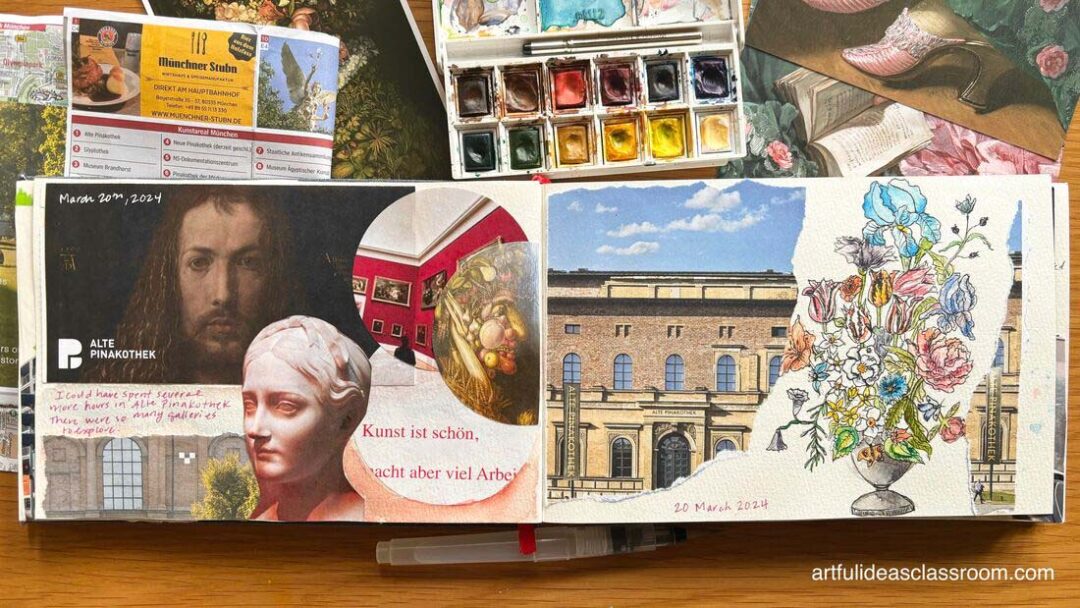
How do you stay motivated when you’re feeling stressed or uninspired?
Because my days are so busy in this season of life, I don’t lack motivation to work on creative projects. Getting to work uninterrupted is such a luxury, so when I do get a free moment I am so excited to get right to work! Sometimes I get that free moment and I become overwhelmed by all of the ideas I have and don’t know what to do first — but I have been working on keeping a list going in my planner of things I want to make which helps me seize the moment when I have free time.
What will your workshop at Creativity Camp cover? Who should attend and what can they hope to learn from your workshop?
My workshop at Creativity Camp will focus on one of my all-time favorite lessons that I teach in my beginning digital art classes: a self-portrait project that centers on a single story told through imagery. This lesson was inspired by a student artwork created in my IB (International Baccalaureate) class several years ago. The artwork was so expressive and utilized many key photo manipulation tools in Photoshop that I decided to use it as a starting point for creating this lesson.
I’m a proponent of project-based learning, where students learn a variety of skills through a larger project. In this project, students are guided through the brainstorming and ideation process of art-making. I’m excited to share these activities, including mind mapping, journaling, and discussion, during the Creativity Camp session. These practical strategies can be used for approaching any creative project, and I’ve seen firsthand how much they help students who struggle with generating ideas or who need to narrow down their focus. We will also review composition and principles of design concepts and discuss how to arrange the photographic elements into a powerful composition.
We will also discuss how to use non-destructive photo editing techniques, which are essential because they allow the artist to preserve the original image so edits can be undone at any stage of the creation process. Photoshop has been moving toward non-destructive editing for years, with new features continually making this easier for users. I hope that participants leave the workshop feeling inspired and empowered to use Photoshop to create complex photo compositions, as well as equipped with practical strategies they can use for a variety of different projects in the future.
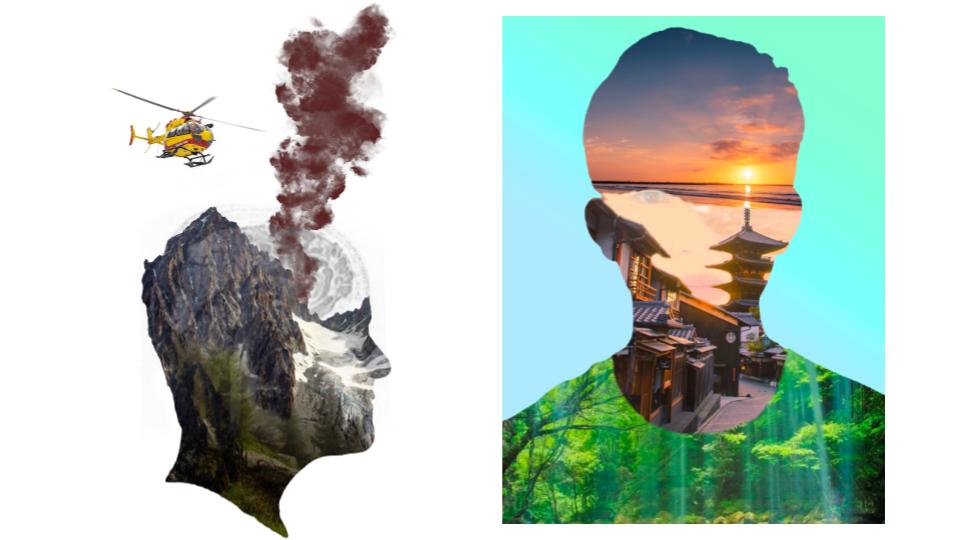
Where can people go to learn more about you, your work, or to follow your journey? Do you have any projects coming up that you’d like to share or promote?
I have a teaching blog where I share detailed information about my lessons and creative projects. I love to share short videos from my classroom and connect with other artists and art teachers on Instagram. If you are a teacher looking for full lesson resources, I also have a TPT shop.
Currently, I am working on designing online PD courses for art educators that cover a variety of topics from syllabus design to scaffolding units in different mediums, and hope to launch them in Summer 2025. I am passionate about helping other art teachers because I know how challenging it can be to balance teaching, home life, and creative projects. My goal is to help fellow art educators free up time and space so they can nurture their inner artist!
